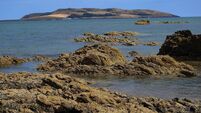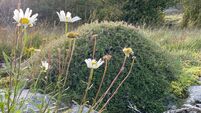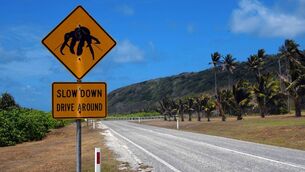The positive impact of rewild volunteers

ReWild Wicklow volunteers grandad and granddaughter, John and Saoirse Alvey, planting Scots pine
What part can volunteers play in Ireland’s biodiversity crisis?
This was the question my siblings, Simon, Ian, Enya, and I had considered for many years. With no wealth, expertise, or land of our own, we struggled to see how we could contribute in a significant way to tackling Ireland’s biodiversity crisis. We were on the mailing lists for national organisations who had the odd volunteer day or field trip here or there, and we helped out at local litter cleanups when we could.







